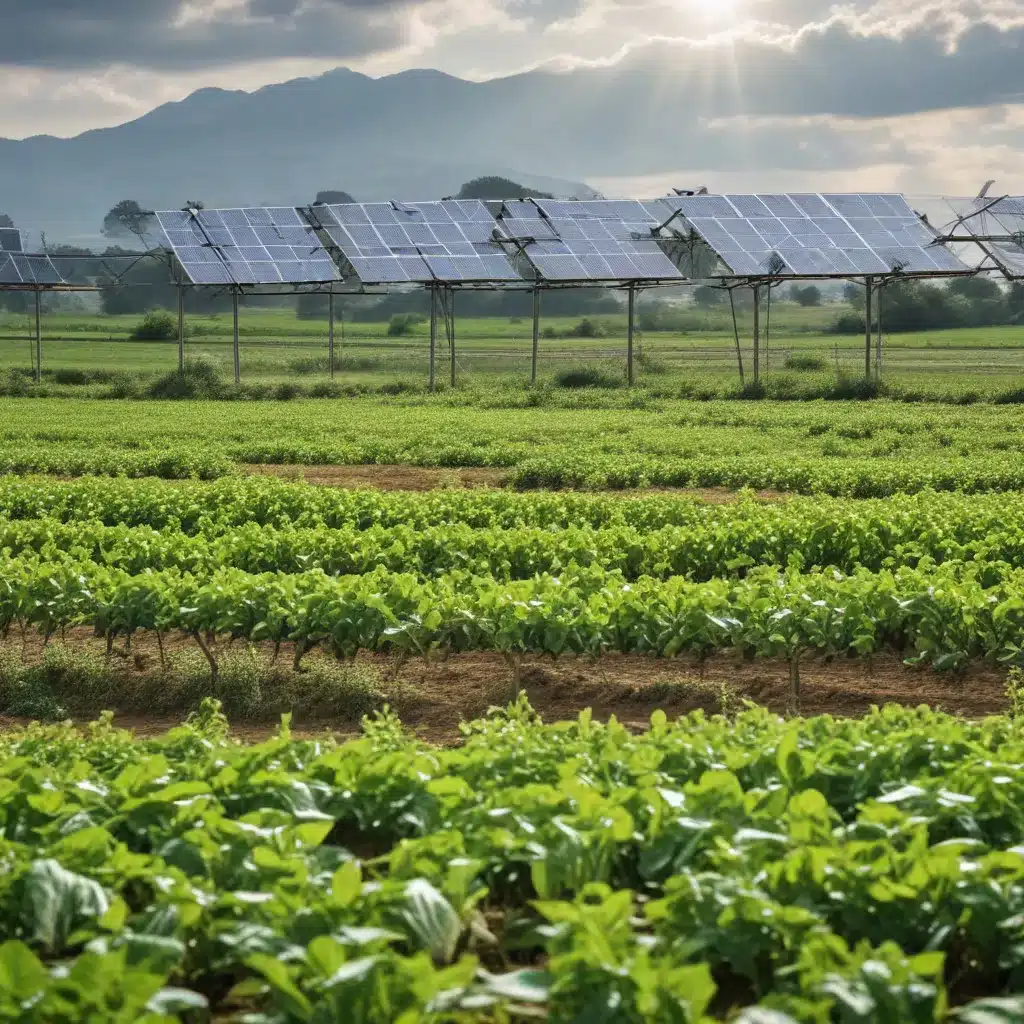
Strategies for Improving Energy Efficiency in the Agricultural Sector
As Europe accelerates its transition towards a sustainable, low-carbon future, the agricultural sector has emerged as a critical frontline in the fight against climate change. Responsible for a significant portion of the continent’s greenhouse gas emissions, the agricultural industry holds immense potential to drive energy efficiency improvements and reduce its environmental footprint. By embracing innovative farming practices, integrating renewable energy sources, optimizing irrigation systems, and upgrading equipment, the European agricultural sector can lead the charge towards a more resilient and eco-friendly food system.
Sustainable Farming Practices
One of the cornerstones of energy-efficient agriculture is the adoption of sustainable farming techniques. Crop rotation and diversification, for instance, can not only improve soil health and boost yields but also reduce the need for energy-intensive inputs, such as synthetic fertilizers and pesticides. By cultivating a variety of crops in succession, farmers can leverage natural pest-control mechanisms and minimize the reliance on energy-intensive chemical interventions.
Moreover, precision farming techniques have emerged as a game-changer in the quest for energy efficiency. Leveraging advanced technologies like GPS-guided tractors, drones, and sensor-driven data analytics, farmers can now precisely monitor and manage their inputs, from fertilizers and water to energy-consuming machinery. By applying the right resources in the right amounts and at the right times, precision farming can significantly reduce energy consumption while maintaining or even enhancing agricultural productivity.
In addition to these precision-based approaches, organic farming methods have gained traction as a sustainable alternative to conventional agriculture. By eschewing synthetic chemicals and relying on natural, renewable inputs, organic farmers can dramatically lower their energy footprint. The holistic, ecosystem-based approach of organic farming not only conserves energy but also promotes biodiversity, soil fertility, and water conservation – all essential elements of a truly sustainable agricultural system.
Renewable Energy Integration
As the European Union continues to ramp up its renewable energy targets, the agricultural sector has a pivotal role to play in this transition. Integrating solar power and wind energy into farming operations can enable the industry to generate its own clean, renewable electricity, thereby reducing reliance on fossil fuel-based energy sources.
The vast, open spaces and abundant sunshine characteristic of many agricultural regions make them ideal locations for solar photovoltaic (PV) installations. Farmers can leverage rooftops, field edges, and even unused land to install solar panels, converting sunlight into electricity to power their operations. This not only offsets their energy consumption but also provides an additional revenue stream through the sale of excess electricity to the grid.
Similarly, the wind-rich landscapes of rural Europe present an opportunity for farmers to harness the power of the wind. By installing wind turbines on their land, farmers can generate clean, renewable energy and potentially earn income through Power Purchase Agreements (PPAs) or other incentive schemes. The synergies between agricultural activities and wind energy production can create a symbiotic relationship, with the wind turbines occupying minimal land area and the farms continuing to thrive around them.
Beyond on-site renewable energy generation, the agricultural sector can also contribute to the broader energy transition by producing biofuels from organic waste and energy crops. The conversion of agricultural residues, such as crop stubble and animal manure, into biogas or liquid biofuels can provide a sustainable energy source while also addressing the challenge of waste management.
Irrigation Optimization
Water is a critical input for the agricultural sector, and its efficient use is paramount in the face of growing water scarcity and the impacts of climate change. Implementing water-efficient irrigation systems can significantly reduce the energy required for pumping and distributing water across farmlands.
Techniques like drip irrigation, pivot irrigation, and sprinkler systems can deliver water directly to the roots of plants, minimizing evaporation and runoff losses. Furthermore, the integration of sensor-driven irrigation scheduling can optimize water usage by precisely matching application to crop needs, reducing both water and energy consumption.
In addition to efficient irrigation methods, the agricultural sector can also explore the potential of wastewater recycling. By treating and reusing wastewater generated from farming operations, farmers can reduce their freshwater withdrawal and the associated energy demands for pumping and distribution. This circular approach to water management not only conserves resources but also contributes to the overall sustainability of the agricultural system.
Equipment and Machinery Upgrades
Modernizing farm equipment and machinery is another crucial aspect of improving energy efficiency in the agricultural sector. Investing in energy-efficient farm machinery, such as tractors, harvesters, and irrigation pumps, can significantly reduce fuel consumption and greenhouse gas emissions.
Advancements in precision agricultural tools and technologies, including GPS-guided implements, variable-rate application systems, and autonomous vehicles, can optimize the use of inputs and minimize energy-intensive operations. By automating and streamlining various farm processes, these cutting-edge technologies can enhance overall efficiency and reduce the environmental impact of agricultural activities.
The transition towards energy-efficient agricultural practices is not without its challenges, but the potential rewards are immense. By embracing a comprehensive approach that combines sustainable farming methods, renewable energy integration, irrigation optimization, and equipment upgrades, the European agricultural sector can lead the way in reducing its environmental footprint and contributing to the continent’s ambitious decarbonization goals.
Pioneering initiatives, such as the European Future Energy Forum, provide a platform for stakeholders across the energy and agricultural sectors to collaborate, share best practices, and unlock innovative solutions. Through these collaborative efforts, the agricultural industry can unlock new pathways towards greater energy efficiency, positioning itself as a vital partner in Europe’s sustainable future.







